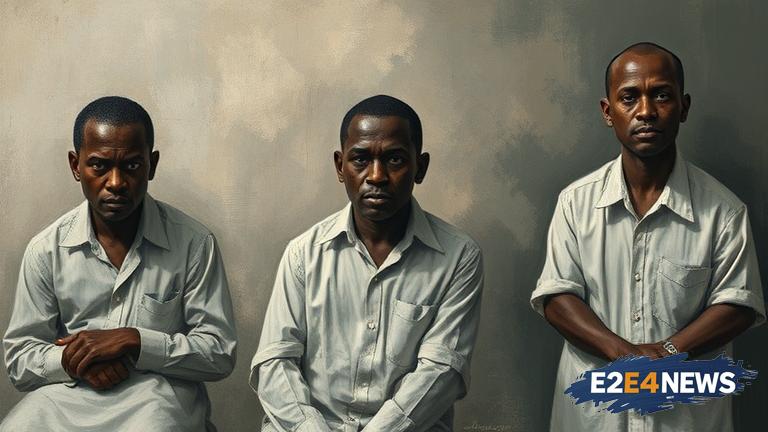The issue of capital punishment in Nigeria has been a longstanding one, with the country’s justice system still meting out death sentences to those found guilty of certain crimes. Despite the controversy surrounding the practice, the Nigerian government has continued to uphold the use of capital punishment, citing its deterrent effect on crime. However, many have argued that the death penalty is not an effective means of reducing crime, and that it is often applied unfairly, with the poor and marginalized being disproportionately affected. The human cost of capital punishment in Nigeria is a significant one, with many families left to pick up the pieces after a loved one has been executed. The emotional trauma caused by the loss of a family member can be devastating, and the financial burden of losing a breadwinner can be crippling. Furthermore, the use of capital punishment can also have a profound impact on the community, with many people living in fear of being wrongly accused and executed. The Nigerian government has been criticized for its handling of capital punishment, with many arguing that the justice system is flawed and that the death penalty is often applied arbitrarily. In recent years, there have been several high-profile cases of people being wrongly accused and sentenced to death, only to be later exonerated. These cases have highlighted the need for reform and the importance of ensuring that the justice system is fair and just. The use of capital punishment in Nigeria is also a violation of human rights, with the United Nations and other international organizations calling for its abolition. Despite this, the Nigerian government has continued to resist calls for reform, citing the need to maintain law and order. However, many argue that the use of capital punishment is not an effective means of reducing crime, and that it is often used as a means of exerting control over the population. The human cost of capital punishment in Nigeria is not just limited to those who are executed, but also to their families and communities. The use of capital punishment can also have a profound impact on the mental health of those who are involved in the process, including judges, lawyers, and prison officials. Many have spoken out about the emotional toll of being involved in the death penalty, and the need for support and counseling. In addition to the human cost, the use of capital punishment in Nigeria also has significant economic implications. The cost of maintaining the death penalty is substantial, with millions of naira being spent each year on maintaining death row and carrying out executions. This money could be better spent on other areas of the justice system, such as rehabilitation programs and community development initiatives. The use of capital punishment in Nigeria is a complex issue, with many different perspectives and opinions. While some argue that it is an effective means of reducing crime, others argue that it is a violation of human rights and that it has a profound impact on the community. Ultimately, the decision to use capital punishment is a moral one, and it is up to the Nigerian government to decide whether or not it is justifiable. However, as the debate continues, it is clear that the human cost of capital punishment in Nigeria is a significant one, and that it is an issue that needs to be addressed. The Nigerian government must consider the impact of capital punishment on families, communities, and the justice system as a whole, and work towards finding alternative solutions that prioritize rehabilitation and restorative justice. By doing so, Nigeria can move towards a more just and equitable society, where the rights of all citizens are respected and protected.
